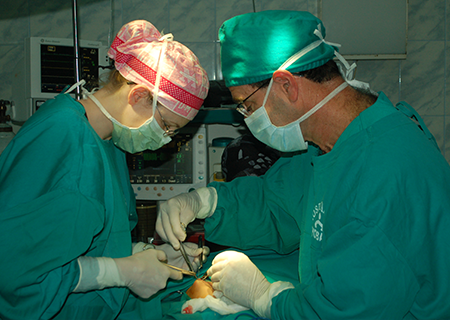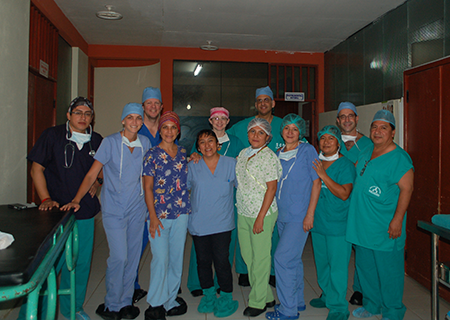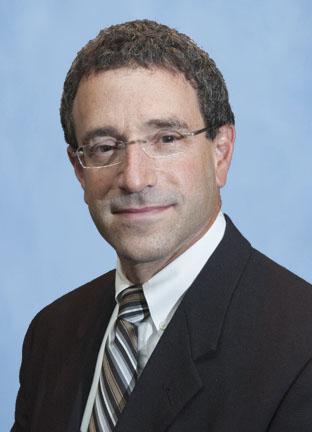
So often, we hear Michigan families comment on how fortunate they feel to have C.S. Mott Children’s Hospital in their backyard. As a parent myself, I have always felt grateful to know the level of care that U-M provides is available so close to home for Michigan families. For me and several of my colleagues, however, the gift of proximity to advanced care becomes even more striking once or twice a year when we step off the plane and begin our work to help children in Yantaló, Peru.
The small Peruvian town of Yantaló sits in the Amazon jungle. Getting to Yantaló is a one-hour flight from Lima, Peru, followed by a two and a half hour car ride. Because of its geographic isolation and lack of resources, getting specialty and surgical care to the residents of Yantaló and the surrounding area is a challenge. Enter C. Luiz Vasquez and the Yantaló Peru Foundation.
Dr. Vasquez established the foundation in 2005, just months after his first visit to the town where his mother was born. For the past two years, I’ve been making the trip to Yantaló once or twice a year with the Yantaló Peru Foundation. Most often I travel with a team of providers from Mott Children’s Hospital and the Children’s Hospital of Wisconsin. We bring down OR personnel and nurses. While there, we perform a wide range of operations from simple hernia repairs to the more complex repair of an imperforate anus.
Our patients come from all over the region. Some parents carry their child up to eight hours through the Amazon jungle to receive our care. While the local physicians and surgeons can treat many common health conditions and perform basic operations, they rely on the expertise of volunteer surgeons like myself and others from Mott and other hospitals for the more complex cases.

When treating patients in Yantaló, we have to rely far more on our clinical judgment because resources are limited. There is no MRI or CT scan devices in Yantaló. If a patient needs one, we must transport them to Lima. It makes me truly appreciate the resources we have here at the University of Michigan. During our trips, we also hold symposiums for the Peruvian healthcare providers to update them on clinical practice and surgical techniques.
The Yantaló Peru Foundation is currently building a new hospital that will have four operating rooms, multiple clinics, inpatient beds, an emergency department and maternity services. The hospital should be open soon and will be a tremendous resource for the residents of the area. We cannot wait for it to open to further improve the quality of care we are able to provide for children in Yantaló.
Yantaló is a long way from Mott and Ann Arbor in both distance and resources, but one thing I’ve noticed is that no matter where you care for a child, a parent’s gratitude is universal. Whether that parent has carried a child for eight hours through the jungle or driven him five minutes in the car, the gratitude of the parents is ever-present.
Take the next steps:
- Learn more about the Pediatric Surgery program at C.S. Mott Children’s Hospital.
- Read more about the global endeavors of Mott’s Section of Pediatric Surgery and the Department of Surgery.
- Learn more about the Yantaló Peru Foundation.
Original Article by Dr. Ronald B. Hirschl: http://uofmhealthblogs.org/childrens/voices-from-mott/providing-surgical-expertise-in-peru/14710/


